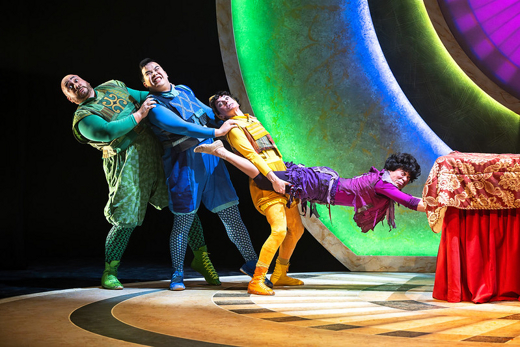Tumble, toss and turn the page in this nimble twist on Hans Christian Andersen’s timeless tale. Disheveled from a rainstorm and forced to prove herself to her faithful servants, a pampered princess learns a lesson in humility—with the help of one pesky pea! A marvel of mattress-springing acrobatics and physical comedy, The Princess and the Pea leaps to life with queen-sized charm and nary a word.
Ages: Recommended for ages 4-7
Cast and Creative team for The Princess and the Pea at New Victory Theater
Cast
How Eyewear Defines Characters and Shapes Storylines in Musical Productions
In the world of Broadway and musical theater, costume design is one of the most powerful storytelling tools. From intricate period dresses to detailed wigs and accessories, the outfits actors wear can reveal more about their characters than dialogue alone. Among the costume elements that fly under the radar is eyewear. Whether it's the subtlety of a pair of prescription glasses or the boldness of statement sunglasses, eyewear plays a crucial role in defining characters and enriching the universe of the story. In fact, it often serves as a key component of world-building, transporting audiences to specific eras, locations, and social environments.
Take for instance, how musicals like Hamilton and Wicked use costume design to enhance their storytelling. In Hamilton, wardrobe choices were meticulously crafted by Tony winner Paul Tazewell to evoke the late 1700s, while also adding a modern twist that appeals to contemporary audiences. Eyewear, along with other costume elements, helps define the distinctive personalities and societal roles of each character. Meanwhile, in Wicked, costume design not only accentuates the fantastical world of Oz but also provides insight into character arcs, such as through Elphaba's glasses, which offer a glimpse into her personality and internal struggles.
In this article, we'll take a closer look at how eyewear helps define characters and shapes storylines in four notable musical productions, each demonstrating how this humble accessory can play an outsized role in character development and plot progression.
Harry Potter and the Cursed Child
Credit: @cursedchildldn on Instagram
Harry Potter and the Cursed Child is a sequel to J.K. Rowling's original Harry Potter series, following Harry as an adult and his relationship with his son, Albus. The story touches on time travel, friendship, and family dynamics, all within the magical world of Hogwarts.
Harry Potter's glasses are iconic, both in the books and on stage. In the musical production, Harry continues to wear his signature round glasses, which serve as a constant reminder of his history as The Boy Who Lived. His eyewear not only signals his intellectual and bookish nature, but also represent his vulnerability. Throughout both the original series and the musical, Harry's glasses are synonymous with his humanity, contrasting with the larger-than-life role he plays in the magical world. As an adult, his glasses remind audiences of the boy who once battled against impossible odds, while also showcasing the burden of responsibility and wisdom he now carries.
Since premiering on the West End in 2016, the play has been restaged in theaters worldwide, including productions in Australia, the US, Canada, Germany, and Japan. Following its record-breaking run in Melbourne's Princess Theatre, a contest was held to give audience members a chance to win Harry's famed glasses and wand used by actor Gareth Reeves during the Australian production.
The Devil Wears Prada Musical
Credit: @pradawestend on Instagram
The character of Miranda Priestly in The Devil Wears Prada Musical is as commanding and fashion-forward on stage as she is in the novel and film. The musical explores the fashion world's ruthless nature, focusing on a young woman, Andy, who finds herself working for Miranda, an esteemed fashion magazine editor.
Miranda Priestly's sunglasses are a defining aspect of her character. Large, designer sunglasses, similar to the sleek Prada PRA06S, obscure her eyes, creating an air of mystery and intimidation. As a symbol of her power, the sunglasses are donned when Miranda enters a room, allowing her to dictate her interactions without revealing her true emotions. Her eyewear conveys an image of control and inaccessibility, emphasizing her status as an untouchable icon in the fashion industry.
Audiences are given a hint of this character's ferocity when Vanessa Williams, who plays the role of Miranda in the West End production, shared a clip on Instagram. In the video, Williams struts into the Runway magazine office wearing dark sunglasses and tosses her things onto her assistant's desk. As she takes her seat and spins around, she whips off the sunglasses and demands watchers to buy tickets for the show, effortlessly embodying the role.
Wicked
Credit: @everythingelphaba on Instagram
Loosely based on the 1995 book of the same name, Wicked tells the story of Elphaba, the misunderstood “Wicked Witch of the West,” and her journey from an outcast to a feared figure in the land of Oz. One of the key elements of Elphaba’s character design is the simple glasses that she wears during her time at Shiz University.
Elphaba’s round, wire-rimmed glasses, which are also featured in the upcoming film adaptation, suggest her intellectualism and curiosity, reinforcing her role as a student who is eager to learn about the world. Her glasses are practical, but they also signify her status as someone who is different—someone who sees the world through a unique lens, both literally and figuratively. In a sense, Elphaba’s eyewear represents her perceptiveness and her ability to see past societal norms and injustices.
Her glasses are later discarded as her character evolves, symbolizing her transformation from a bookish young woman into a confident and defiant force of nature. The removal of her glasses marks a turning point in her story, showing that she no longer needs to hide behind them or conform to the expectations of others.
Hamilton
Hamilton is a groundbreaking musical that tells the story of Alexander Hamilton, one of America’s Founding Fathers, through a modern lens. The musical seamlessly blends historical authenticity with contemporary style, and the characters’ costumes are key to its success.
Alexander Hamilton’s eyewear comes into play as a subtle yet important part of his costume in various scenes. His glasses, most notably worn in the second act as his career and life progress, highlight his shift from young revolutionary to an older, more seasoned politician and thinker. Hamilton’s glasses are used to depict his growing responsibilities and intellectual prowess, as well as his vulnerability during moments of emotional or political strain.
The glasses contribute to world-building by signaling the passage of time and the maturity of Hamilton’s character. Their presence subtly emphasizes his status as a writer and statesman who is constantly thinking and strategizing, pushing the story of his rise and eventual downfall forward.
In each of these musicals, eyewear is more than just a prop. It becomes a visual tool that deepens character development and enhances the storytelling process. Whether it’s defining personalities, signaling character evolution, or moving the plot forward, glasses and sunglasses on stage help to create unforgettable characters and captivating narratives.
New Victory Theater Frequently Asked Questions FAQ
New Victory Theater is at 209 W 42nd Street, New York, NY 10036, New York, NY.
Nuttin' but a Word (2/15/25-2/23/25)
Little Murmur (1/10/25-12/19/24)
Yuletide Factory (11/23/24-12/29/24)
Baba Yaga and the Firebird (11/9/24-11/17/24)
New Victory Dance: Program A (7/11/24-7/11/24)
The Vanishing Elephant (10/14/23-10/29/23)
New Victory Dance: Program C (7/27/23-7/27/23)
New Victory Dance: Program B (7/20/23-7/20/23)
Hip Hop Cinderella (2/9/23-2/17/23)
Song of the North (3/15/25-3/23/25)
Videos
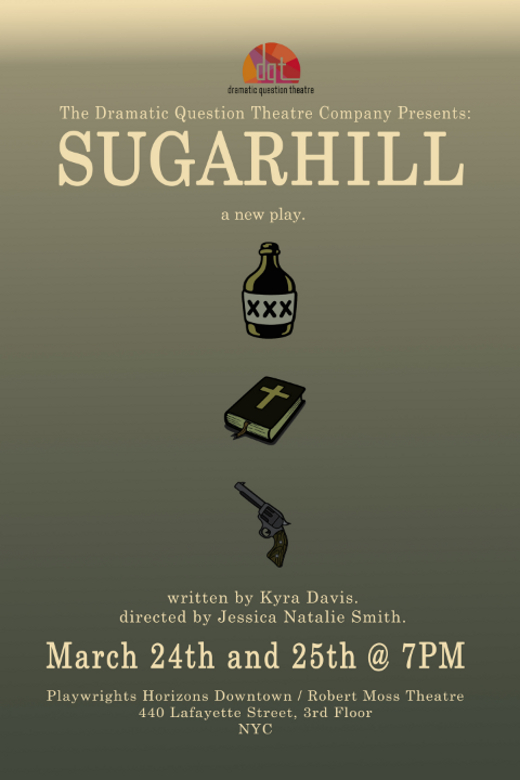 |
SugarHill
Playwrights Horizons Downtown, Presented by Dramatic Question Theatre (3/24 - 3/25) | |
 |
Piano Panties: A Cheeky Cabaret Show
Sid Gold’s Request Room (7/2 - 6/30) | |
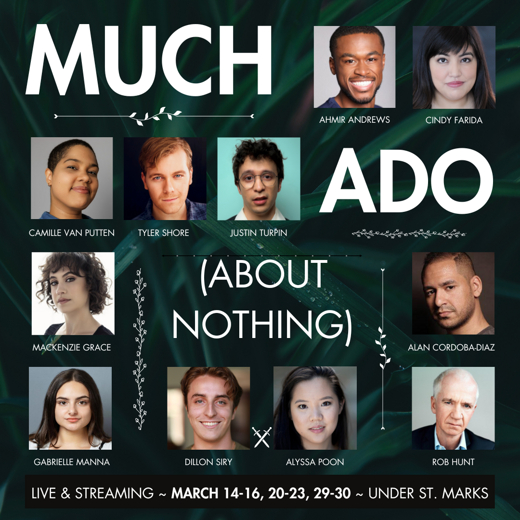 |
Much Ado About Nothing
Under St. Marks Theater (3/14 - 3/30)
PHOTOS
| |
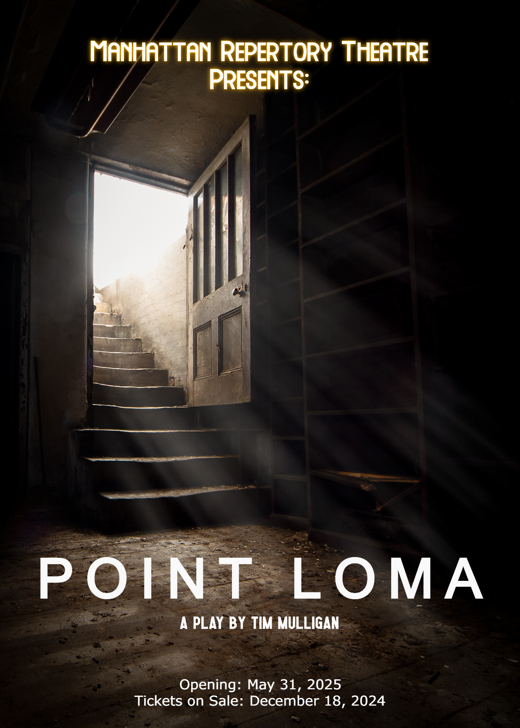 |
Point Loma
Chain Theatre (5/31 - 6/15) NEW PLAY | |
 |
One Night Only! Shit Isn’t A Dirty Word - How Gut Health Made Me Who I Am
Theatre One at Theatre Row (4/3 - 4/3) LIMITED TICKETS REMAIN OFF-OFF-BROADWAY PREMIERE
PHOTOS
VIDEOS
| |
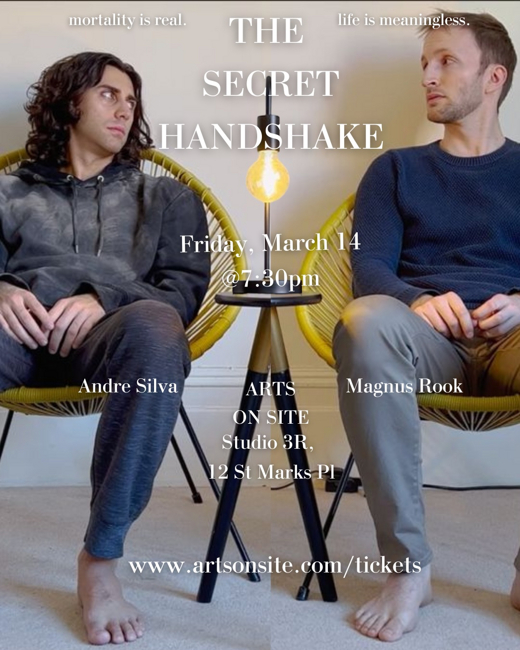 |
The Secret Handshake
Arts On Site (3/14 - 3/14)
PHOTOS
| |
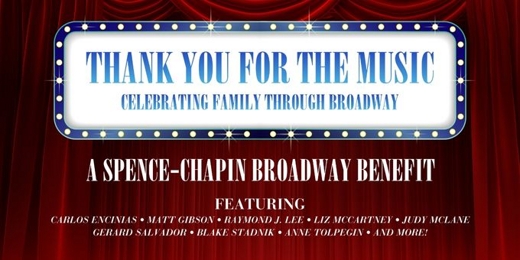 |
Thank You For The Music - Celebrating Family Through Broadway
54 Below (4/3 - 4/3) | |
 |
One-Way Ticket
The Spark Festival (3/12 - 3/12) OFF-OFF-BROADWAY PREMIERE
PHOTOS
| |
 |
The Dinner Detective Comedy Mystery Dinner Show
The Dinner Detective NYC (3/15 - 3/15) | |
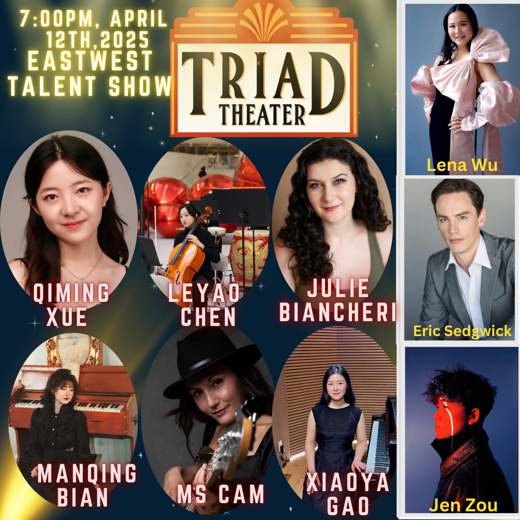
|
EastWest Talent Show
triad theater (4/12 - 4/12) | |
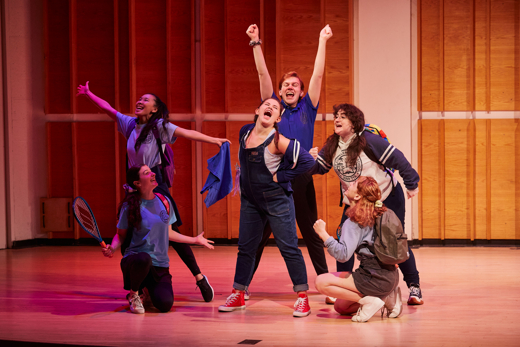
|
Messy Millie
The 92nd Street Y, New York (5/3 - 5/18) | |
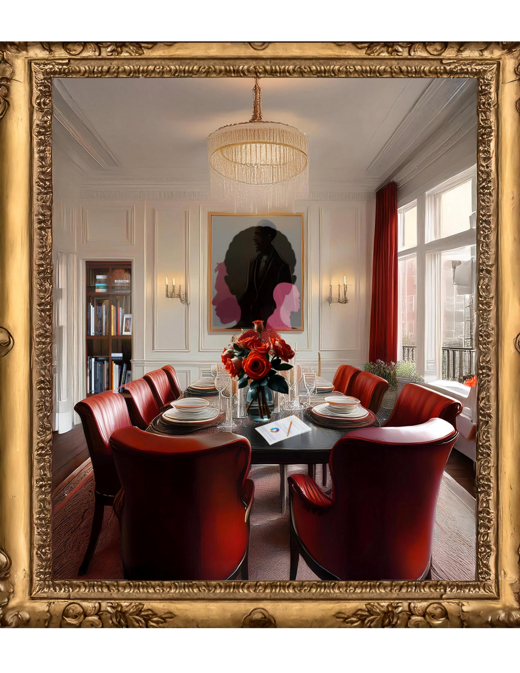
|
Counterbalance
The Tank (2/8 - 3/18)
PHOTOS
| |
|
Thank You For The Music - Celebrating Family Through Broadway at 54 Below
Thank You For The Music - Celebrating Family Through Broadway (4/1 - 5/2) | ||
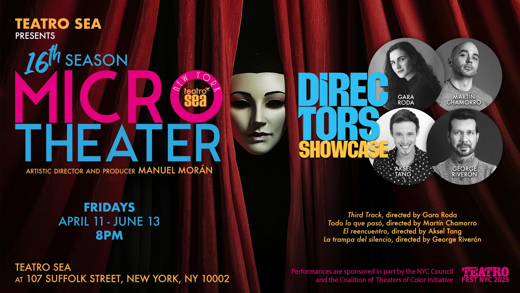
|
MicroTheater NY 16th Season: Director's Showcase
Teatro SEA (4/11 - 6/13) | |
| VIEW SHOWS ADD A SHOW | ||
Recommended For You


